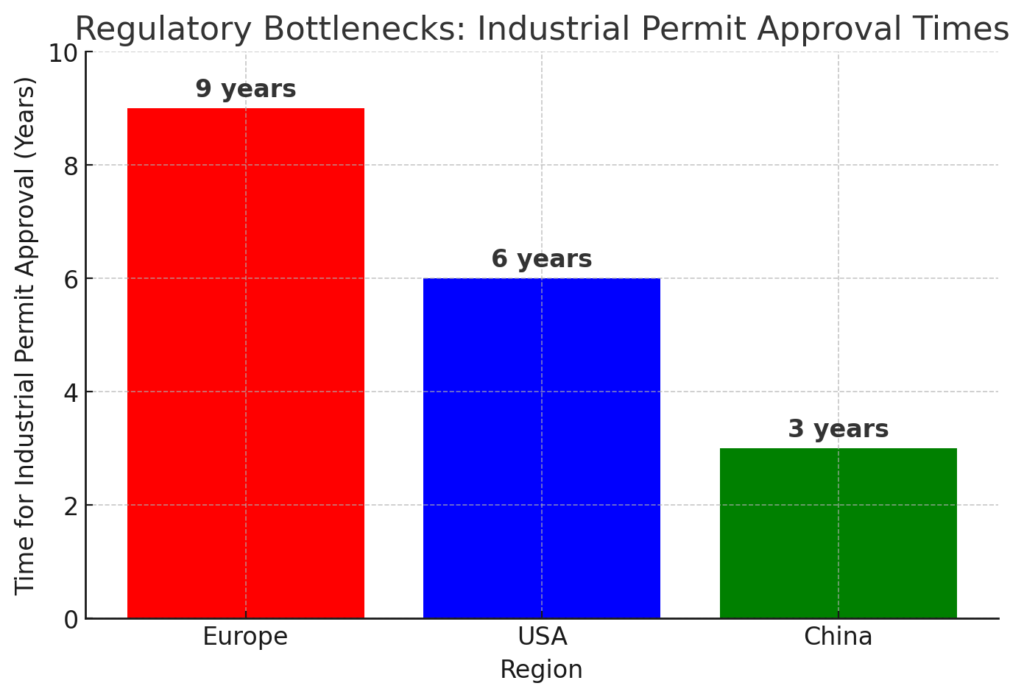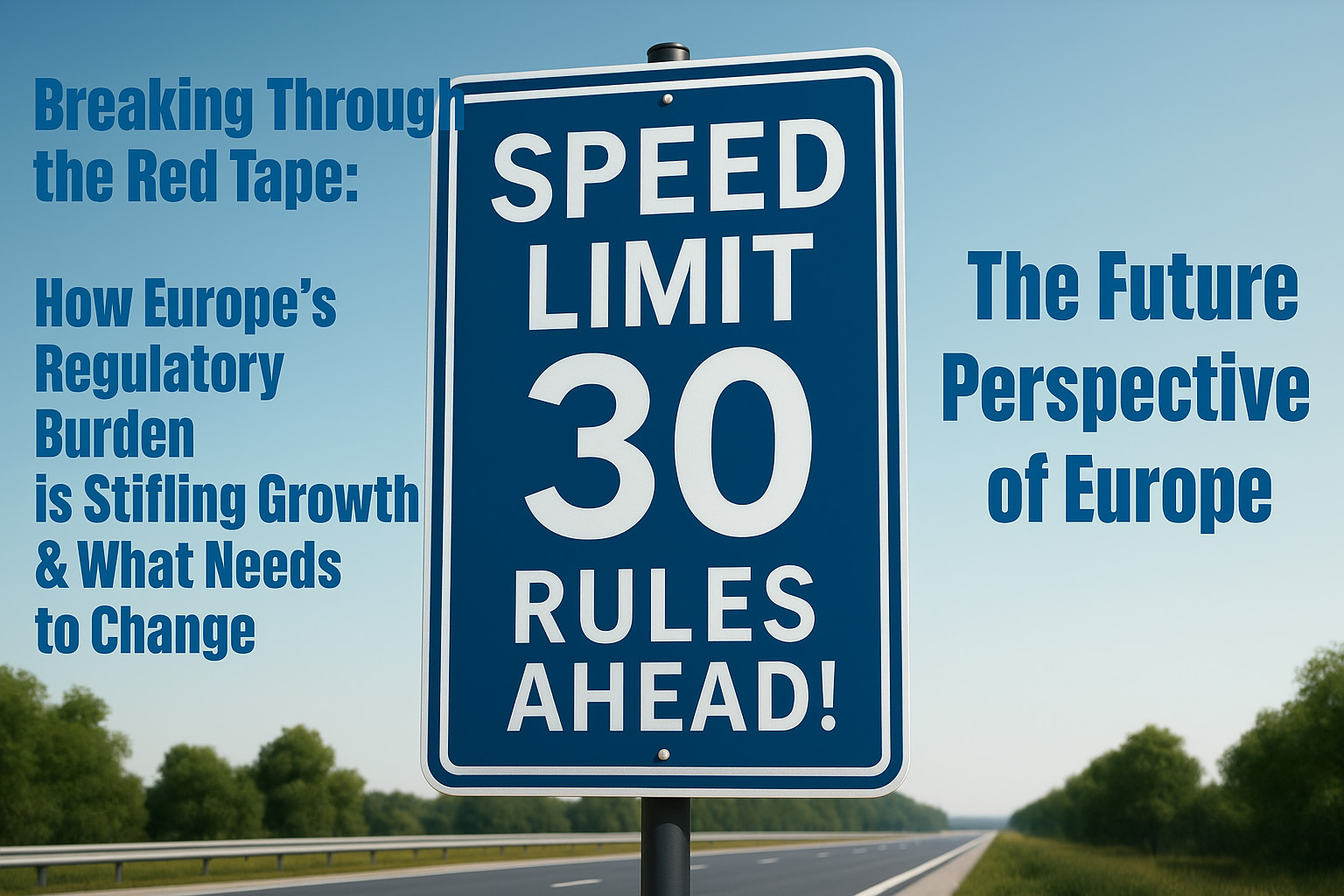Is Regulation Killing Business Growth?
“More than 60% of EU companies view regulation as an obstacle to investment, with 55% of SMEs identifying regulatory obstacles as their greatest challenge.” – BusinessEurope
Europe has world-class talent, strong institutions, and a rich history of innovation. Yet, despite these strengths, excessive bureaucracy and complex regulations are holding back businesses from growing, hiring, and expanding into global markets. While compliance is essential, the current system increases costs, slows down investment, and makes Europe less competitive compared to the U.S. and China.
So, how do we cut through the red tape and unlock Europe’s true economic potential? Let’s dive in.
The Regulatory Burden: How Bad Is It?
1. Industrial Permits Take Too Long
- In Europe, industrial permit approvals take up to 9 years – that’s 1.5x longer than in the U.S. and 5x longer than in China. (European Policy Centre)
- 83% of businesses say that slow permitting processes discourage them from investing in Europe. (BusinessEurope Report)
2. SMEs Are Drowning in Paperwork
- A Lisbon-based tech startup spends 20% of its time on regulatory compliance instead of growth.
- Germany’s strict labor laws make it difficult for manufacturers to hire and scale quickly. (German Chamber of Commerce Report)
- SMEs lack the resources to handle complex sustainability compliance requirements. (EU Commission Report)
3. The Green Transition Is Creating Compliance Nightmares
- While the EU Taxonomy aims to drive sustainable investments, small businesses struggle to meet its complex requirements. (EU Sustainable Finance)
- A family-owned transport company in the EU had to submit excessive paperwork to qualify for bioethanol truck financing—an unsustainable burden for small firms.
The bottom line? Europe’s red tape is crippling business expansion and pushing investment elsewhere.

Solutions: How Europe Can Reduce Regulatory Burdens
1. Fast-Track Permitting & Cut Compliance Complexity
✔️ Set a clear, fast-track industrial permitting process (targeting approvals in under 3 years).
✔️ Reduce paperwork by eliminating duplicate and outdated regulations.
✔️ Implement automated digital compliance tools to streamline reporting. (Santander Insights)
2. Make Regulations SME-Friendly
✔️ Reduce SME reporting obligations by at least 35%.
✔️ Implement sector-specific flexibility so smaller businesses don’t face the same regulatory burdens as large corporations.
✔️ Apply the “Think Small First” principle, ensuring laws consider SME needs before implementation. (Accountancy Europe)
3. Balance Green Goals with Business Practicality
✔️ Simplify sustainability compliance requirements for small and medium enterprises.
✔️ Offer tax incentives and grants to help SMEs transition without high compliance costs.
✔️ Delay non-essential reporting requirements to allow businesses time to adapt. (European Commission Work Programme)
If Europe prioritizes regulatory efficiency, it can unleash a wave of business growth and job creation.
The Path Forward: A Pro-Business Europe
The Path Forward: A Pro-Business Europe
The European Commission has promised to cut reporting requirements by 25% by 2025. But businesses argue that this is just the beginning. Mario Draghi’s latest report on European competitiveness makes it clear:
“This is not about deregulation – it’s about ensuring the right balance between caution and innovation.”
(OECD Report on Regulatory Challenges)
If Europe wants to compete with the U.S. and China, it must act fast to reduce bureaucratic inefficiencies while maintaining necessary regulations.





